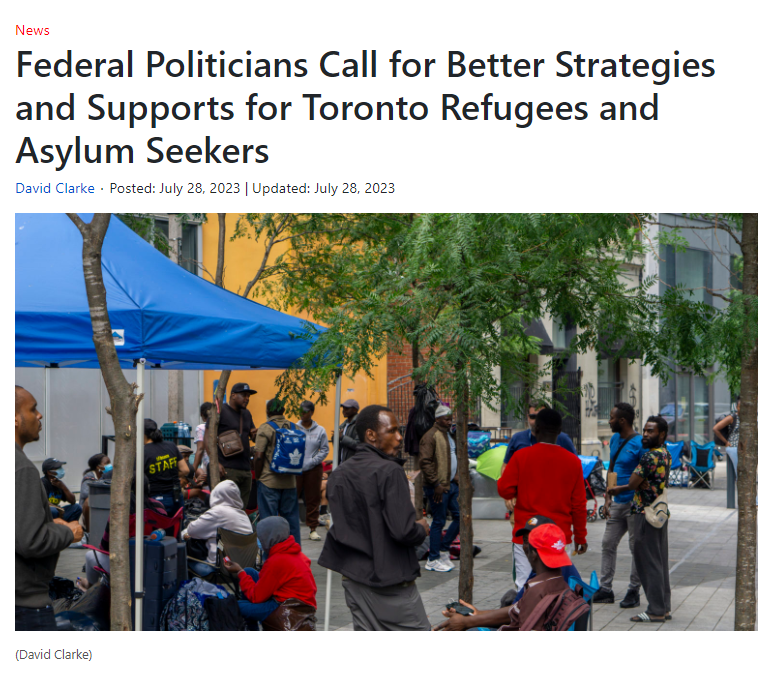We live in an interconnected world, and events transpiring worldwide ultimately affects Canadians, whether we are speaking about economic trade, global prices of goods and commodities, knowledge and skills exchange, effects of climate change, disease transmission and control, natural disaster management, and others. Fulfilling our international obligations protects and serves the interests of Canadians.
People fleeing war, persecution or natural disasters face tremendous barriers to obtaining necessary travel documents. For this reason, I have been advocating for visa-free travel for urgent, life-and-death situations such as the war in Ukraine. I have also been advocating for the government to rescind the safe third country agreement because often, refugees cannot get to safety without first going to a third country. It is paramount that Canada has an adequately resourced immigration system that can act with flexibility and expediency in times of crisis without compromising national security standards.
As your Member of Parliament, I will fight to ensure Canada fulfills its humanitarian and environmental obligations as a member of the international community.

Globe & Mail: Immigration Minister says Palestinians will not be sent back to Gaza if visas expire
Palestinians in Canada will not be sent back to Gaza if their visas expire while the war between Israel and Hamas rages, Immigration Minister Marc Miller told a Commons committee on Tuesday.
He was responding to questioning from NDP immigration critic Jenny Kwan who asked the minister whether he would extend the visas of Palestinians in Canada so they are not sent back to Gaza during the war once they expire.
“We can do that. We can extend the visas,” Mr. Miller replied in a hearing before the Commons immigration committee.













